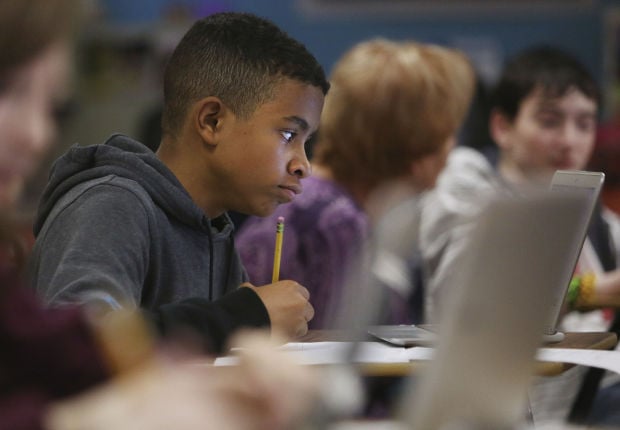The Grand Canyon Institute has done the research and concludes that Proposition 123 needs to be approved by voters on May 17 as an important first step that clears the way for addressing the long-term funding needs of our public schools.
Prop. 123 restores funding of legal minimums and must be followed with substantive investments in K-12 education. Arizona’s support for K-12 education has fallen far deeper than most people realize.
Prop. 123 reflects an important compromise. It gives lawmakers more leeway during tight fiscal times to suspend the automatic inflation adjustment to the base level. However, when growth returns, the Legislature is still required to fund it along with future inflation adjustments. Due to a likely recession in the next 10 years, the Grand Canyon Institute estimates the 10-year total flow of dollars to K-12 education under Prop. 123 will be $3.3 billion, not $3.5 billion.
Claims that passing Prop. 123 will deplete our State Trust Land Permanent Fund are not true. The trust fund grew from about $1 billion to $5 billion between 2000 and 2015.
The investment returns to our Trust Fund amount to about 4.5 percent annually after controlling for inflation, yet we only take 2.5 percent. Consequently, we can afford 10 years where the amount goes up to 6.9 percent, since we’ll return to 2.5 percent again after 10 years. We will rebuild the balance that we’ve taken to fund Prop. 123.
Prop. 123 is a first step, but doesn’t solve our education funding gap. The gap relative to 2007 amounts to nearly $1 billion due to cuts in all-day kindergarten, new school construction, building repairs and renewal, and payments for soft capital items like computers and textbooks. In 2021, the 0.6 percent education sales tax expires, creating another $800 million shortfall, and in 2026, when the state land trust takings return to 2.5 percent annually, the general fund will need to fund another $200 million. Collectively, that’s a $2 billion annual funding gap.
Prop. 123 provides an immediate infusion of funds that many districts will use to provide the first decent raises teachers have seen in a decade. But, inflation adjustments control only for changes in prices and student enrollment. They don’t provide revenue to create competitive teacher salaries.
Based on data from the National Center for Educational Statistics and the Census Bureau, Arizona’s teacher salaries remain about 90 percent of the national average. Arizona’s pupil-to-teacher ratio has ballooned in recent years. In 1992, it was about 10 percent larger than the national average. Today, it is 40 percent greater than the national average.
No wonder more than 1,000 teacher openings were not filled as the school year was about to begin — and administrators scrambled to fill them.
In 1992, on a per-pupil level, Arizona was 80 percent of the national average in state-sourced funding. Today, it’s 55 percent, the worst in the country. Combining rising class sizes with decreased education spending yields the most alarming result of all: State-sourced spending per teacher has dropped from 70 percent of the national average in 1992 to 40 percent of the national average today. Local property taxes that fund schools in Arizona are lower than most places, so they don’t make up the difference.
Given that lack of investment, our K-12 system does remarkably well, but our choices have not reflected a priority of investing in our future, and our lagging economic growth is a consequence. Prop. 123 assures funding legal minimums and provides an immediate infusion of funds. It is a necessary first step. Prop. 123 provides an important base. Next, Arizonans need to come together and identify the investments that will make our K-12 system shine.





